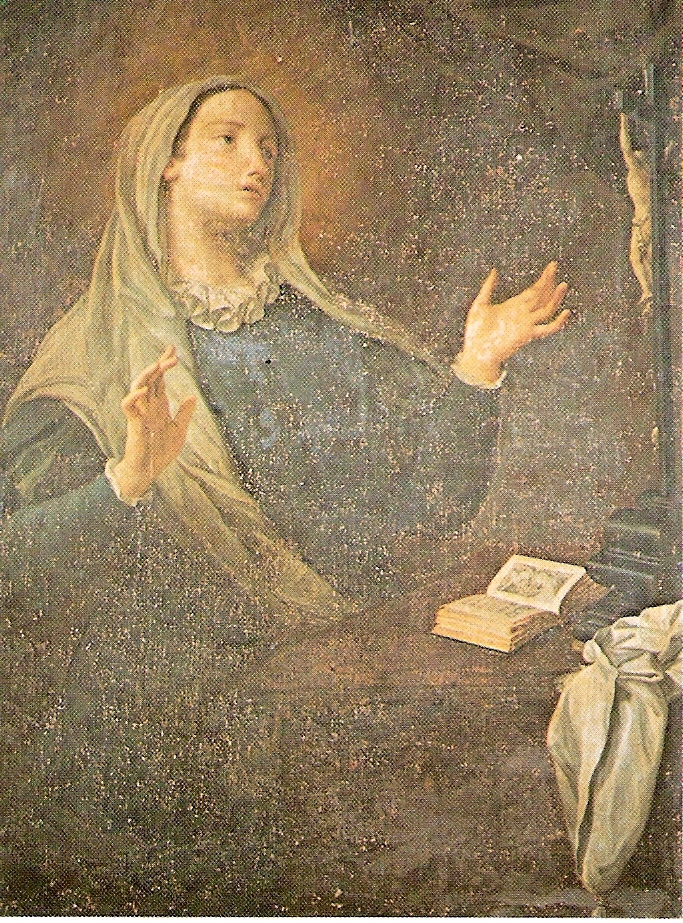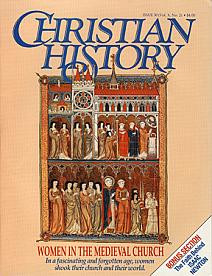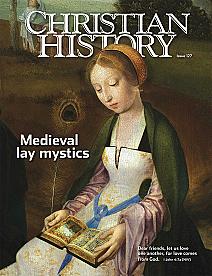SPIRITUALLY DRY, CATHERINE RECEIVED A RAY OF DIVINE LIGHT

[Giovanni Agostino Ratti (1699–1775), Catherine of Genoa—Davide Papalini / public domain, Wikimedia File:Santa Caterina Fieschi Adorno-dipinto Giovanni Agostino Ratti.jpg]
IN 1473, Catherine of Genoa was sick of the world and desperate to worship God as passionately as she had as a child. In childhood she had been obedient, deeply moved by Christ’s passion, given to prayer and penitential practices. At thirteen she had requested to enter a convent but been denied because of her youthfulness. Instead, her parents required her to marry three years later.
The marriage was unhappy because Giuliano Adorno frittered his money and cheated on his young wife. After several wretched years, Catherine sought amusements to divert her mind. Harmless enough in themselves, they left her dry in her soul. After five years of this dreariness, she was crying out to the Lord for a restoration to her childhood state of love.
On this day 20 March 1473, Catherine visited a convent where her sister was a nun. Her sister encouraged her to talk with the convent’s confessor, reputed to be a holy man. While waiting to speak with him, Catherine experienced a ray of divine light that showed her God’s love and her own sin. Overcome, she swooned into a trance. Coming to herself, she asked to be excused and went home.
Following this incident, she lived a rich spiritual life that she expressed in three books: The Dialogs of the Soul and Body, Treatise on Purgatory, and an oral history recorded by Father Marabotti near the end of her life. She saw her husband converted to Christ and, as part of her self-denial, worked in Genoa’s hospital. Her attitude toward self-denial was expressed in these words: “Since I am determined to join myself to God, I find that I am also bound to be the enemy of his enemies. And since I find nothing that is more his enemy than the self that is in me, I am constrained to hate this part of me more than any other.”
Although Purgatory as a place has little or no Scriptural warrant, Catherine claimed to have had extensive visions of it. She considered her life a form of Purgatory: “This process of purification to which I see the souls in Purgatory subjected, I feel within myself.”
—Dan Graves
----- ----- -----
Two issues of Christian History that speak of the medieval experience of faith are Christian History #30, Women in the Medieval Church







